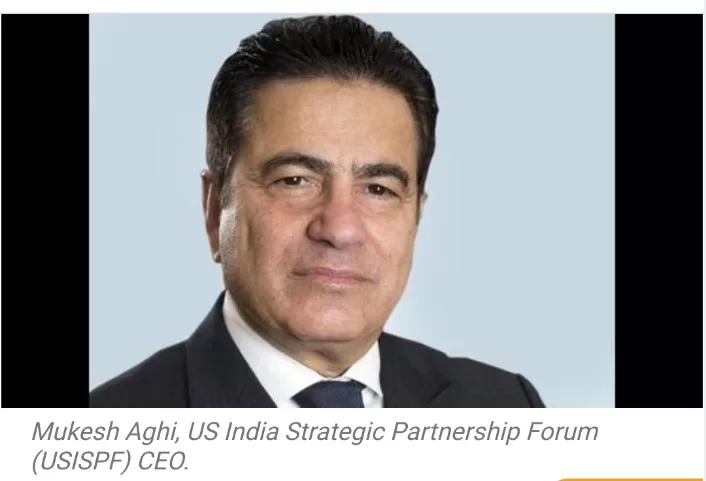At the recent United Nations General Assembly (UNGA) session, Mukesh Aghi, CEO of the US India Strategic Partnership Forum (USISPF), voiced his reservations about the credibility of Canada’s allegations against India concerning the killing of a pro-Khalistan leader. Aghi, a prominent figure at the UNGA, noted that the fervor surrounding Canada’s accusations had significantly subsided. In a candid interview, he underscored that the United States had chosen a measured response to these allegations, given its substantial political and economic interests in India. Here are the key insights from the conversation:
Observations from the UN General Assembly Session:
The UNGA session this year was marked by the absence of influential leaders such as the Indian Prime Minister, President Xi, and President Putin. This created a noticeable void in global leadership within the UN. Unlike the previous year, Ukraine was not the central issue. Instead, the dominant themes revolved around climate concerns and the Global South’s calls for UN reforms. There were also discussions on financing initiatives related to women’s empowerment and climate transition.
Canada’s Allegations: A Fading Echo:
The allegations made by Canada against India did not dominate the UNGA discussions as expected. Canada’s accusations lacked sticking power, as they were perceived more as a political maneuver than a genuine effort to safeguard Canada’s national interests. This was especially apparent given Canada’s amicable relations with India, an emerging global power. Trudeau’s willingness to sacrifice this relationship without presenting compelling evidence undermined the credibility of Canada’s claims. In comparison, the United States adopted a reserved stance on the issue, with a focus on larger concerns, particularly its strategy concerning China. India’s pivotal role in addressing China’s influence, as well as its significance as a market for American businesses, contributed to the restrained American response.
Neutral Parties’ Perspectives:
Even neutral nations, including those within the Five Eyes alliance, did not exhibit strong reactions to Canada’s allegations. The United States’ response was primarily an attempt to align with the progressive left. The paramount concern for the U.S. was managing its complex relationship with China, where India played a critical role. While some of Aghi’s colleagues expressed minor concerns, many acknowledged Prime Minister Modi’s leadership and doubted his inclination towards the alleged actions. The absence of concrete evidence from Canada further weakened the credibility of these allegations.
In conclusion, Canada’s allegations against India, once touted as a major UNGA issue, gradually lost traction. The lack of substantiated evidence and the broader geopolitical context steered the global discourse towards more pressing matters, such as climate change and UN reform. India’s image as a rising soft power remained largely intact, as the allegations failed to withstand scrutiny.






